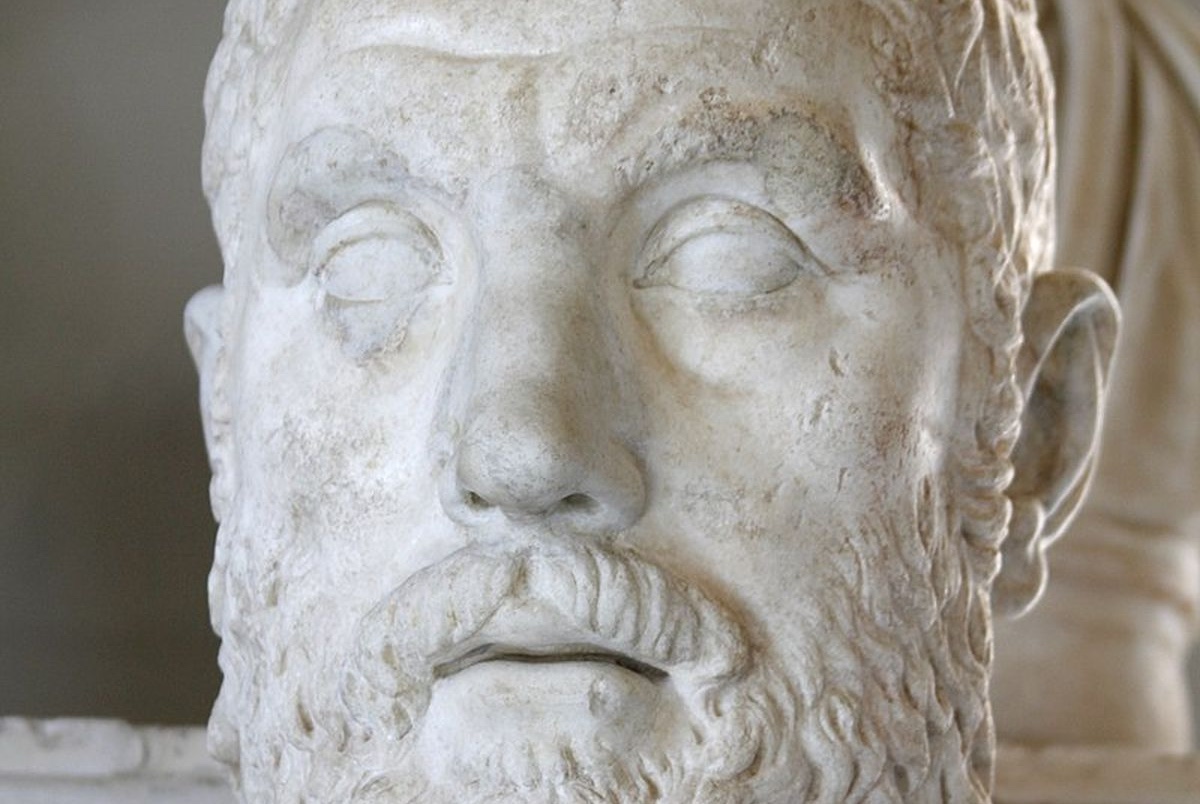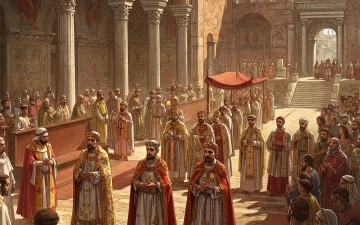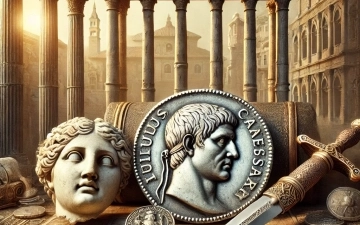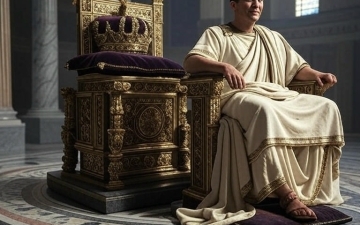Macrinus: The First Equestrian Emperor and His Brief Attempt to Stabilize Rome

Opilius Macrinus, an unexpected figure in the annals of Roman history, ascended to the imperial throne in 217 AD after the assassination of Caracalla. Unlike his predecessors, who hailed from the senatorial aristocracy, Macrinus was an eques, a member of the equestrian order, a social class traditionally associated with business and finance. His elevation to the highest office in the Roman state marked a significant departure from established norms.
Macrinus was a seasoned administrator and military commander. He had served as prefect of the Praetorian Guard under Caracalla, gaining invaluable experience in the intricacies of imperial power. Upon assuming the purple, he immediately faced a daunting task: restoring order to an empire destabilized by years of tyranny and warfare.
One of Macrinus’ first challenges was to repair the damage inflicted by Caracalla’s extravagant spending. The late emperor's lavish policies had drained the imperial treasury, and Macrinus was forced to implement austerity measures to stabilize the economy. He reduced the size of the imperial bureaucracy, cut back on public spending, and increased taxes to replenish the coffers.
On the military front, Macrinus sought to end the costly Parthian War. He negotiated a peace treaty with the Parthians, which while unpopular in some quarters, brought a much-needed respite from conflict. The resources saved were redirected towards strengthening the empire's defenses along the Rhine and Danube frontiers.
Despite these efforts, Macrinus faced significant opposition. The Praetorian Guard, accustomed to the lavish rewards bestowed by Caracalla, resented Macrinus' austerity measures. The Senate, while initially supportive of his reforms, grew increasingly impatient with his lack of senatorial connections. Most importantly, the Roman populace, weary of war and economic hardship, yearned for a strong and charismatic leader.
Macrinus' downfall was swift and decisive. In 218 AD, he was defeated in battle by the young and ambitious general Elagabalus, who claimed to be the son of the deified Caracalla. The Praetorian Guard, eager to support a new emperor who promised riches and power, deserted Macrinus, and he was executed.
The reign of Macrinus was brief but significant. As the first equestrian to become emperor, he challenged the traditional power structures of Rome. His attempts to stabilize the economy and end costly wars demonstrated his administrative abilities. However, his inability to connect with the Roman people and his failure to secure the loyalty of the Praetorian Guard ultimately led to his downfall.
Macrinus' reign serves as a reminder of the challenges faced by Roman emperors in the 3rd century. The empire was grappling with economic instability, military threats, and a growing sense of crisis. While Macrinus' reforms were essential, they were insufficient to address the deep-seated problems facing Rome.
Related Posts
Leadership and Planning Skills That Help with Moving
Relocating to a new home or city can be one of life's most stressful events. It involves juggling logistics, coordinating multiple people, and making critical decisions, all while managing the emotional toll of change. But if you approach your move with strong leadership and effective planning skills, the process becomes...
Read MoreRoman Emperors and the Importance of the Catholic Jubilee of 2025
Throughout history, Roman emperors have played a crucial role in shaping the world, particularly in their influence over politics, religion, and culture. Their legacy continues to resonate today, especially in the traditions of the Catholic Church. One such tradition is the Catholic Jubilee, a sacred year of forgiveness, renewal, and...
Read MoreThe Evolution of Customer Expectations In A Digital-First World
Introduction: When Everything Changed for Travelers Think back to your last vacation ten years ago. Going off-grid was actually part of the appeal, wasn't it? Fast forward to today, and that mindset seems downright prehistoric. Modern travelers want their phones working before the plane wheels touch down, and they're definitely not...
Read MoreUnearthing History: Julius Caesar’s Artifacts and Their Significance
Julius Caesar, one of the most renowned figures of Roman history, left an indelible mark on the ancient world. His military conquests, political reforms, and dramatic death have made him a central figure in historical and archaeological studies. Although Caesar lived over two millennia ago, numerous artifacts associated with his...
Read MoreCreating a Welcoming Worship Space: Tips for Choosing Inclusive Church Chairs
An inviting and inclusive church environment is paramount for fostering a strong sense of community and belonging. While theological beliefs and welcoming greetings are essential, the physical space itself also plays a significant role. One often-overlooked element that can significantly impact inclusivity is your church seating. This post dives...
Read MoreFrom Roman Thrones to Heavenly Crowns: The Emperor and the Rise of Catholicism
Once upon a time in the bustling heart of ancient Rome, emperors wore laurel wreaths and ruled sprawling empires with iron fists. Temples to Jupiter and Mars dotted the skyline, and gladiators clashed in the Colosseum under the approving gaze of the gods of Olympus. And yet, within this world...
Read More






















